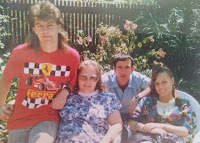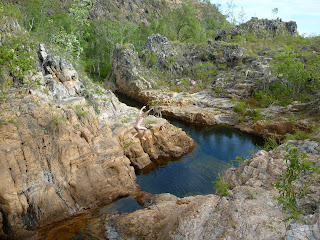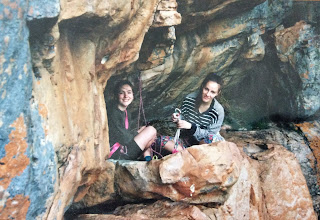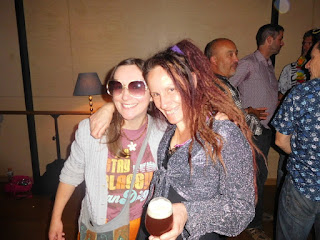Whilst everyone is busy writing submissions to PV, I’d like to point out that they have already been swamped in letters, emails, interviews, meetings, submissions etc etc saying the same things that everyone seems keen to restate now – eg. Climbers do not damage cultural heritage; climbers have a connection to the land; the closures have an economic impact; oh, but what about all the other damage to cultural heritage in the world; we need a more nuanced approach than blanket bans, etc etc. In case you hadn’t noticed, it isn’t working. Maybe it's time for more people to join the reconciliation approach, not just because it is the right thing to do, but because it might actually lead to mutually beneficial outcomes?
Saying climbing does not damage cultural heritage continues to demonstrate that climbers are not listening. It is not our position to say whether we have damaged cultural heritage or caused offence. The traditional owners are saying that we have. Insisting we haven’t just demonstrates we are not listening. Please just stop. No conversation about sharing space can happen until we acknowledge that. Try instead saying that we didn’t intend to cause harm, we are sorry we caused harm, we would like together to find ways to share these places without causing harm. How can we hope to be listened to when we aren’t listening either?
Those people trying to compare the relative value of different
people’s connection to land, please just stop. It’s not possible to compare
these things, it’s incredibly rude, presumptive and condescending, it causes
hurt and offense, and continues to demonstrate my previous point, that climbers
are not listening. It’s also kinda irrelevant. The legislation is about
indigenous cultural heritage, not post-invasion cultural heritage. It’s trying
to take the focus away from what the discussion is actually about, on
protecting indigenous cultural heritage.
Accusing PV of trying to make money out of climbing is just
as evidenced as some of their accusations of climbers causing damage. It’s the
same sort of slander and just as unhelpful. Also, like climbing heritage, the
economic impacts are kinda irrelevant. The legislation is about protecting cultural
heritage, not the economy. Talking about the economic impacts again is taking
the discussion away from the actual topic. Please just stop.
Yes, there is a bunch of damage to cultural heritage across
the country and the whole country has cultural heritage, but this too is kinda
irrelevant. Native title legislation only applies to a very small amount of
land. Mining and private property rights override any native title claims.
Hence, it is really only in our public lands that the legislation has any
effect. So, outrageous as Juukan Gorge was, it has no relevance on our
situation. Carrying on about the Peaks Trail is also pointless, because this
has already gone through the process of considering cultural heritage and
reached conclusions about what can be done to minimise impact. You might not
agree with the consolidation of trails and campgrounds to minimise impacts, but
that is the choice of the land managers, and it is, again, not our situation.
Stop trying to talk about other stuff!!!! It demonstrates that we are, again, not
listening, and also, that we are failing to take responsibility for our own
stuff. Can we move on from this as well?
Much as you wouldn’t think so for the carrying on, PV have actually listened to climbers about selective closures. They haven’t said “the entire Victoria Range is closed”. They have gone through every single crag recorded, most of which none of us have every heard of, let alone been to, and given a crag by crag assessment. A whole bunch of them are still under consideration. You may not like the outcome at some of them, but they have tried to do what we asked for, and have said they will consider further focussing of closures. Try saying thank you, you appreciate they have changed the blanket ban approach, and a lot of work has gone into reviewing many areas, but there are places where the area covered by the crag is extensive, and we would appreciate if they could be broken down into smaller areas to review if some of the crag was still appropriate to climb at, that we would like to be involved in the assessment of areas. The traditional owners are also saying they want to support recreational use of their land where possible. This is in fact a positive step forward. Work with it. Of course, we will never be involved in the assessment of areas if we don’t stop doing all of those things I pointed out earlier, because climbers are burning bridges with traditional owners at a great rate. There is a reason why the reconciliation network are the only climbers invited into the discussions.
The majority of climbers have spent the past 18 months
yelling and screaming, and it hasn’t gotten us anywhere. This situation isn’t going to go away because
it makes us upset, uncomfortable, challenges how we have been, what we do and
where we go. It isn’t just
Victoria. Moving to Queensland, or
voting for a liberal government (seriously, why would you throw health, welfare,
education and the environment to the wind and vote liberal over cultural heritage?)
will not make it go away. Climbers say they want to protect cultural heritage
and work with the traditional owners. Start actually doing what you say then,
by listening to the traditional owners, by acknowledging what they say, because
this is the very first step to having a conversation. And please stop doing the
opposite –protest climbs and legal challenges are blatantly rude to the
traditional owners and it’s impossible have respectful conversations when you
are busily causing even more offense than you did in the first place.
It’s also very easy to go into a conversation with set ideas about its resolution. Think about how you feel when you have a problem, you tell it to someone and they instantly start telling you what to do about it. You don’t feel listened to and acknowledged. You don’t feel like they have asked how you feel, what you would like to happen or what your preferred outcome is. You feel like they have imposed their solutions on you and assumed that you don’t have your own solutions to your problem and they know better than you. That is kinda what we do when we go into these conversations with our solutions to reconciling climbing and cultural heritage already formed. Solutions need to be formed together, and conversations need to start from a position without expectations first. Climbers have been doing a bunch of whitesplaining.
There is a whole range of problematic behaviour amongst the climbing community throughout this – from outright racism, to unconscious racism, simple lack of awareness and thoughtlessness, a lack of empathy, and defensive privilege. Please stop calling the reconciliation approach “woke”, “brown-nosing”, or “giving up climbing”. It’s actually just called being a decent human being, and incidentally, the only way we are going to be able to move forward. Yes, I am offended by words and actions of many climbers around this. But I am also frustrated because I, too. want to be able to climb, and these actions and words aren’t just offensive. They are ruining our chance to build relationships that will be the foundation of our access in the future.



















































